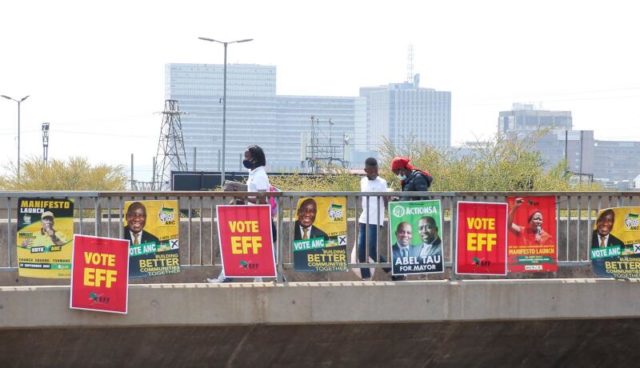The refusal by some political parties to obey the Political Party Funding Act has become more blatant as only two parties – the ANC and the DA – have made declarations in the latest disclosure report.
THE REFUSAL by some political parties to obey the Political Party Funding Act has become more blatant as only two parties – the ANC and the DA – have made declarations in the latest disclosure report.
The Electoral Commission of South Africa (IEC) issued the party funding’s fourth-quarter Disclosure Report, covering all qualifying donations declared by political parties for the three-month period between January and March 2022.
The ANC declared R10 million, while the DA declared a little over R2.5 million.
While the IEC has not raised serious concern over the lack of declarations, chief electoral officer Sy Mamabolo observed that the fourth quarter declarations were – by far – the least, both in terms of value of donations and the number of parties making declarations.
“For the first time, only two political parties made declarations and the total value of donations was below R30 million, which was – until now – the least amount declared in a quarter.
“Noting that the fourth quarter disclosure period was immediately after the local government elections, it appears that there is a nexus between the number and total value of donations and the election cycle. The more imminent the elections, the more likely that parties will receive significant donations.”
So far, the ANC and the DA have been the only parties to declare their donations in every quarter. The EFF has only declared donations for the first and last time in the previous quarter, while this is the first time newcomers ActionSA have failed to make any declarations.
Mamabolo said that another emerging feature of the party funding disclosure regime was that political parties – with the highest representation in the national and provincial legislatures – appeared more likely to receive donations on a regular basis than those with lower representation, the ANC and the DA being typical in this regard.
Each quarter of the financial year, since the enactment of the act, parties must report all donations over R100,000 to the IEC, whether in cash, in kind, or both. The R100,000 is a total amount (multiple donations from the same entity are added together, and must be declared immediately when the total value reaches R100,000).
According to a statement released by the IEC on Monday, the DA declared an in-kind donation of R786,152.81 from the German foundation, Friedrich Naumann Foundation (FNF).
All of the DA’s declared donations, except for one, were received from foreign donors. The combined value of these foreign donations is R2,405,387.72, constituting 95% of the total value of donations declared by the DA during the fourth quarter.
Of this amount, the FNF donated R1,713,250.80 and the Danish Liberal Democracy Programme (DLDP) donated R692,136.92.
Considering that each of these foreign donors have made repeated donations to one political party, the commission said it found it necessary to consider the cumulative value of all donations over the financial year under review.
“The commission can, therefore, confirm that all the foreign donations declared by the DA were fully compliant with the act, in that they fall within the R5 million ceiling per donor. Furthermore, the donated funds were utilised for activities falling within the ambit of the law, namely policy development, training and skills development of members of the political party,” the IEC statement read.
In the reporting period, the commission also received a contribution of R5,000 into the Multi-party Democracy Fund (MDF).
This amount was received from a member of the public, named Ivan Pillay, on March 29. The Commission lauded this contribution.
This is the first financial year since the implementation of the Party Funding Act was concluded at the end of March 2022. This means that political parties are now required to submit their audited annual financial statements to the commission. The political parties have three months, from the end of the financial year, to submit their annual financial statements to their appointed independent auditors.
The auditors are then provided with a further three months to audit the submitted annual financial statements. The audited financial statements, accompanied by the auditor’s opinion, must be submitted by the political party’s accounting officer to the commission, by the end of September this year.
To assist political parties, the commission is currently on a national roadshow to provide registered political parties with training on the preparation and submission of audited financial statements. This is part of the efforts by the commission to increase the extent of compliance with the party funding prescripts.








